1. Introduction
1.1 What is 1070 Aluminum Foil?
1070 aluminum foil is a high-purity aluminum product containing 99.7% aluminum.
It belongs to the 1000-series aluminum alloys, which are renowned for their exceptional corrosion resistance, electrical and thermal conductivity, and malleability.
Known for its lightweight yet durable characteristics, 1070 aluminum foil is widely used in industries that demand high performance and reliability, such as electronics, packaging, and construction.

What is 1070 Aluminum Foil
Unlike other aluminum alloys, 1070 foil offers unparalleled flexibility and softness, making it easy to process into thin sheets or complex shapes while maintaining its structural integrity.
1.2 Significance of 1070 Aluminum Foil in Various Industries
The unique properties of 1070 aluminum foil make it indispensable across multiple industries.
Its high purity ensures excellent electrical and thermal conductivity, which is crucial for sectors like electronics and energy.
Additionally, its ability to act as a perfect barrier against moisture, light, and contaminants makes it an ideal material for food and pharmaceutical packaging.
Industries such as automotive and construction also rely on 1070 aluminum foil for lightweight, corrosion-resistant components.
Its recyclable nature further enhances its value in sustainable manufacturing practices.
2. Material Properties of 1070 Aluminum Foil
2.1 Chemical Composition
1070 aluminum foil is composed primarily of aluminum, with minimal impurities.
| Element |
Percentage (%) |
| Aluminum (Al) |
99.7 |
| Silicon (Si) |
≤ 0.20 |
| Iron (Fe) |
≤ 0.25 |
| Others |
≤ 0.05 each |
2.2 Physical Properties
1070 foil exhibits excellent physical characteristics that make it suitable for various applications.
| Property |
Value |
| Density |
2.7 g/cm³ |
| Melting Point |
660°C |
| Electrical Conductivity |
≥ 62% IACS |
| Thermal Conductivity |
~235 W/m·K |
2.3 Mechanical Properties
The mechanical properties of 1070 aluminum foil ensure smooth processing and durability.
| Property |
Value |
| Tensile Strength |
60–95 MPa |
| Elongation |
≥ 15% |
| Hardness (HV) |
~35 |
2.4 Corrosion Resistance
1070 aluminum foil offers excellent resistance to corrosion in most environments, including exposure to moisture, air, and chemicals.
Its high purity minimizes the risk of galvanic corrosion, making it suitable for long-term applications.
3. Production Process of 1070 Aluminum Foil
The production process of 1070 aluminum foil involves several precise and carefully monitored stages to ensure high-quality output.
Each step contributes to the material’s superior properties, such as high purity, excellent conductivity, and outstanding malleability.
Below is a detailed breakdown of the production process.
3.1 Raw Material Preparation
Melting
- The process begins with melting high-purity aluminum (≥99.7%) in a furnace.
- The furnace operates under controlled conditions to maintain a consistent temperature, ensuring uniform melting and minimizing impurities.
- Advanced filtration techniques are used to remove any residual contaminants from the molten aluminum, ensuring the final product’s purity.

Aluminum casting furnace
Alloying
- Although 1070 aluminum foil is known for its high purity, minor amounts of other elements may be added to improve specific characteristics, such as strength or corrosion resistance, depending on application needs.
- The alloying step is optional and is carefully calibrated to maintain the alloy’s classification as 1070 aluminum.
Casting
- The purified molten aluminum is cast into large ingots or slabs using either direct chill (DC) casting or continuous casting methods.
- Direct Chill Casting: The molten aluminum is poured into molds and rapidly cooled to form solid ingots.
- Continuous Casting: The molten aluminum passes through a rolling system while cooling, creating thin, continuous sheets that can be further processed.
- After casting, the aluminum ingots or sheets are ready for the next stage of rolling.
3.2 Rolling and Annealing
Hot Rolling
- The aluminum ingots are preheated to a specific temperature (typically 400–500°C) to improve workability.
- Using hot rolling mills, the ingots are rolled into thinner sheets. This process reduces thickness while increasing the surface area.
- Hot rolling also enhances the material’s mechanical properties, such as strength and flexibility.
Cold Rolling
- After hot rolling, the aluminum sheets undergo cold rolling at room temperature.
- Cold rolling achieves the final desired thickness of the foil, which can range from ultra-thin (0.006mm) to thicker sheets (0.2mm).
- This step ensures a smoother surface finish, tighter dimensional tolerances, and improved mechanical properties.
Annealing
- Annealing is a heat treatment process performed at various stages of production to soften the aluminum foil.
- The foil is heated to a specific temperature and then cooled at a controlled rate. This process restores ductility and relieves internal stresses caused by rolling.
- Depending on the application, the foil may be fully annealed (soft temper, O) or partially annealed (hard temper, H).

Rolling and Annealing
3.3 Quality Control
To ensure the final product meets industry standards and customer requirements, rigorous quality control measures are applied throughout the production process.
Thickness Tolerance
- Precise thickness is critical for most applications. Advanced measurement tools, such as laser gauges, monitor and control the foil’s thickness during rolling.
- Deviations are corrected immediately to maintain uniformity across the entire foil roll.
Surface Finish
- The surface quality of 1070 aluminum foil is crucial for applications like food packaging and electronics.
- Inspections ensure that the foil is free from defects such as scratches, dents, pinholes, or oxidation marks.
- Techniques like brushing, polishing, or chemical cleaning may be applied to enhance the foil’s surface finish.
Mechanical and Chemical Testing
- Mechanical Tests: Tensile strength, elongation, and hardness tests are performed to verify the foil’s durability and flexibility.
- Chemical Tests: The aluminum content and purity levels are analyzed to ensure compliance with the 1070 standard (≥99.7% aluminum).
Packaging and Storage
- Once the quality control checks are complete, the foil is carefully wound into rolls or cut into sheets.
- Special packaging materials, such as moisture-resistant wraps, prevent contamination or damage during transportation and storage.

Packaging and Storage of Aluminum Foil
Importance of Each Step
- Melting and Casting: Directly impact the purity and quality of the aluminum foil.
- Rolling: Determines the thickness, surface finish, and mechanical properties.
- Annealing: Ensures the foil’s flexibility and suitability for different applications.
- Quality Control: Guarantees compliance with industry standards and customer specifications.
4. Core Advantages of 1070 Aluminum Foil
1070 aluminum foil offers a unique combination of properties that make it stand out among other aluminum alloys.
Its high-purity content (99.7% aluminum) ensures exceptional performance across various applications.
Let’s explore the core advantages of 1070 aluminum foil in greater detail.
4.1 High Purity and Superior Conductivity
- Electrical Conductivity: 1070 aluminum foil has excellent electrical conductivity, with a conductivity rate of approximately 62% International Annealed Copper Standard (IACS). This makes it ideal for use in electrical and electronic components, such as capacitors, transformers, and lithium-ion batteries.
- Thermal Conductivity: Its high thermal conductivity (~235 W/m·K) ensures efficient heat transfer, making it a preferred choice for thermal insulation, heat exchangers, and cooling systems.
4.2 Exceptional Corrosion Resistance
- The high aluminum content provides outstanding corrosion resistance, especially in environments exposed to moisture, air, and chemicals.
- This property makes 1070 foil suitable for long-term applications in harsh environments, such as outdoor construction materials and industrial insulation.
- Unlike other alloys that may corrode over time due to alloying elements, the purity of 1070 aluminum ensures minimal risk of chemical reactions or galvanic corrosion.
4.3 Unmatched Flexibility and Malleability
- 1070 aluminum foil is highly malleable and can be processed into ultra-thin sheets without breaking or cracking.
- This flexibility allows manufacturers to create customized shapes and sizes for specific applications, such as food packaging, pharmaceutical blister packs, and industrial laminates.
- In its annealed (soft temper) state, 1070 foil can be easily folded, pressed, or laminated, providing excellent adaptability during production.
4.4 Lightweight Yet Durable
- Despite its lightweight nature (density of 2.7 g/cm³), 1070 aluminum foil offers excellent durability and strength for its weight.
- It significantly reduces the overall weight of products, making it ideal for industries like automotive and aerospace, where weight reduction improves fuel efficiency and performance.
- Its lightweight property also simplifies transportation and handling, reducing costs across the supply chain.
4.5 Eco-Friendly and Recyclable
- 1070 aluminum foil is 100% recyclable without losing its original properties, making it an environmentally friendly material.
- Recycling aluminum requires only 5% of the energy used in primary production, significantly reducing the environmental impact.
- Many industries, such as packaging and construction, choose 1070 foil to meet sustainability goals while maintaining high performance.
4.6 Cost-Effectiveness
- While offering high purity and superior performance, 1070 aluminum foil remains cost-effective compared to other specialized materials.
- Its affordability, combined with its long lifespan and recyclability, makes it a highly economical choice for both manufacturers and end-users.
- It provides exceptional value in applications requiring both high conductivity and corrosion resistance, such as electrical wiring or heat exchangers.
4.7 Wide Range of Applications
- Thanks to its versatile properties, 1070 aluminum foil is suitable for a wide array of applications across industries like electronics, food packaging, construction, and medical devices.
- Its adaptability ensures efficiency and reliability in both everyday and highly specialized uses.
5. Main Applications of 1070 Aluminum Foil
1070 aluminum foil’s unique properties, such as high purity, excellent conductivity, exceptional flexibility, and corrosion resistance, make it indispensable across a wide range of industries.
Below is a detailed exploration of its key applications and how its characteristics align with the needs of various sectors.
5.1 Electronics and Electrical Industry
Capacitor Foils
- 1070 aluminum foil is widely used in the production of capacitor electrodes due to its high electrical conductivity (≥62% IACS).
- Its purity ensures efficient energy storage and discharge, making it ideal for use in power supplies, electronic circuits, and motor start capacitors.

1070 Aluminum Foil for Capacitor
Transformer Windings
- In transformers, 1070 foil serves as a key material for windings because of its lightweight nature and excellent conductivity.
- The foil enhances energy efficiency by minimizing power loss during electrical transmission.
Battery Components
- 1070 aluminum foil is extensively used in lithium-ion batteries, especially as a current collector for anodes.
- Its superior conductivity and corrosion resistance improve battery performance, making it crucial for applications in electric vehicles, renewable energy storage systems, and portable electronics.
Busbars and Electrical Connectors
- The high conductivity and malleability of 1070 aluminum foil make it an excellent material for busbars and connectors in electrical systems.
- It ensures reliable power distribution in industrial machinery, power grids, and large-scale electronics.
5.2 Packaging Industry
Food Packaging
- 1070 aluminum foil acts as a perfect barrier against moisture, air, light, and contaminants, ensuring food freshness and extending shelf life.
- It is commonly used for wrapping chocolates, candies, baked goods, and ready-to-eat meals.
- The foil’s non-toxic and food-safe properties make it ideal for direct contact with edible products.
Pharmaceutical Packaging
- In the pharmaceutical industry, 1070 aluminum foil is used for blister packs, strip packs, and other sterile packaging solutions.
- It provides a protective barrier that safeguards medicines from environmental factors such as moisture, heat, and UV light, ensuring long-term efficacy.

Pharmaceutical Packaging 1070 Aluminum Foil
Beverage Packaging
- The foil is used to manufacture bottle caps, container seals, and laminated beverage cartons.
- Its ability to create airtight seals ensures the freshness of liquids, such as juices, wines, and carbonated drinks.
Flexible Packaging
- 1070 aluminum foil is widely applied in flexible packaging for snacks, coffee, tea, and other consumer goods.
- Its lightweight nature and superior barrier properties reduce transportation costs while maintaining product quality.
5.3 Industry and Construction
Thermal Insulation
- The excellent thermal conductivity of 1070 aluminum foil makes it a key material in industrial and building insulation systems.
- It is commonly used as a reflective heat shield in HVAC systems, pipelines, and ductwork, improving energy efficiency and reducing heat loss.
Soundproofing
- 1070 aluminum foil is used as a soundproofing material in construction and industrial settings.
- Its lightweight and flexible nature allow it to be laminated with other materials to create barriers that reduce noise transmission.
Heat Exchangers
- In industrial machinery and heating systems, 1070 aluminum foil is used in heat exchangers to transfer heat efficiently.
- Its high thermal conductivity ensures optimal performance in applications such as refrigeration, air conditioning, and industrial cooling systems.
Roofing and Building Materials
- The foil acts as a barrier against moisture and heat in roofing systems, improving thermal insulation and building durability.
- Its corrosion resistance ensures long-term performance in outdoor environments.
5.4 Special Applications
Medical and Pharmaceutical Uses
- Sterility: 1070 aluminum foil is used to create sterile packaging for surgical instruments, medical devices, and pharmaceuticals.
- Blister Packs: Its excellent barrier properties make it the material of choice for blister packs used to package tablets and capsules.
- Non-Toxicity: The foil’s non-toxic and hypoallergenic nature ensures safety in medical applications.
Automotive and Aerospace
- Heat Shields: 1070 aluminum foil is used as a lightweight heat shield in automotive engines to protect sensitive components from heat damage.
- Lightweight Parts: In the aerospace industry, its lightweight and durable properties make it ideal for reducing the overall weight of aircraft while maintaining structural strength.
Renewable Energy Systems
- In solar panels, 1070 aluminum foil is used as a reflective layer to enhance sunlight absorption and energy output.
- Its corrosion resistance ensures long-term performance in outdoor solar and wind energy systems.
Household Applications
- 1070 aluminum foil is commonly used for household purposes, such as cooking, baking, and freezing.
- Its malleability makes it easy to fold, wrap, or mold for various kitchen tasks.

1070 Aluminum Foil for Household
Why 1070 Aluminum Foil Excels in These Applications
The versatility of 1070 aluminum foil stems from its ability to combine high performance with cost-effectiveness.
Its lightweight nature, exceptional flexibility, high conductivity, and corrosion resistance make it suitable for a wide variety of applications.
From advanced industrial uses to everyday household tasks, 1070 aluminum foil continues to be a material of choice for industries worldwide.
6. Langhe Purchase and Application Guide
6.1 Specification Selection
When selecting 1070 aluminum foil, consider:
- Thickness: Choose according to the application (e.g., thin foil for packaging, thicker foil for insulation).
- Width and Length: Ensure compatibility with processing equipment.
- Temper: Consider whether soft (O) or hard (H) temper is required.
6.2 Quality Inspection Standards
Check for:
- Uniform Thickness: Variations can affect performance.
- Surface Finish: Look for smooth, defect-free surfaces.
- Purity Certification: Ensure the aluminum content meets the 99.7% standard.
6.3 Application Scenario Adaptability
Assess:
- Environmental Conditions: Ensure corrosion resistance for outdoor or humid environments.
- Performance Requirements: Match the foil’s conductivity and strength to the task.
7. Comparison with Other Alloys
The following table outlines the key differences between 1070 aluminum foil and other commonly used aluminum alloys, highlighting their chemical composition, mechanical properties, applications, and unique advantages:
| Alloy |
Chemical Composition |
Mechanical Properties |
Physical Properties |
Primary Applications |
Key Advantages |
Limitations |
| 1070 |
– Al ≥ 99.7%
– Si ≤ 0.20%, Fe ≤ 0.25%
– Cu ≤ 0.04% |
– Tensile Strength:
– O-temper: 75–130 MPa
– H18: 240–250 MPa
– Elongation:
– O-temper: 25–35%
– H18: 3–5%
– Yield Strength:
– O-temper: 30–50 MPa |
– Density: 2.70 g/cm³
– Melting Point: 660°C
– Electrical Conductivity: 62% IACS (highest in 1000 series)
– Thermal Conductivity: 237 W/m·K |
– Electronics: Lithium-ion battery current collectors, electrolytic capacitors
– Packaging: Food, pharmaceuticals, cigarette liners
– Industrial: Solar panels, heat exchangers |
– Highest purity (99.7% Al) for superior conductivity and corrosion resistance
– Excellent formability for ultra-thin gauges (down to 0.016 mm)
– 100% recyclable with minimal performance loss |
– Lower strength than alloyed grades (e.g., 3003, 5052) in untreated states
– Higher cost than lower-purity alloys like 8011 |
| 1235 |
– Al ≥ 99.35%
– Si + Fe ≤ 0.65% |
– Tensile Strength:
– O-temper: 75–130 MPa
– H18: 240–250 MPa
– Elongation:
– O-temper: 25–35%
– H18: 3–5% |
– Electrical Conductivity: 60% IACS
– Density: 2.705 g/cm³ |
– Lithium-ion batteries (secondary to 1070 in high-purity needs)
– Food packaging, electromagnetic shielding
– Industrial foil for general applications |
– Balances purity (99.35% Al) and cost
– Slightly higher impurity tolerance for broader processing flexibility |
– Lower conductivity and corrosion resistance than 1070
– Thickness tolerance slightly looser in some grades |
| 8011 |
– Al ≥ 99.0%
– Si 0.5–0.9%, Fe 0.6–1.0% |
– Tensile Strength:
– O-temper: 100–150 MPa
– H14: 170–210 MPa
– Elongation:
– O-temper: 20–30% |
– Electrical Conductivity: 55% IACS
– Density: 2.71 g/cm³ |
– Air conditioning fins, cable wrapping
– Household foil, general packaging |
– Most cost-effective in 1000 series
– Good balance of formability and moderate strength |
– Lower purity (99% Al) leads to reduced conductivity and corrosion resistance
– Thicker gauges (typically ≥0.03 mm) unsuitable for ultra-thin applications |
| 3003 |
– Al 99.5%
– Mn 1.0–1.5% (strengthening agent) |
– Tensile Strength:
– O-temper: 140–180 MPa
– H14: 210–250 MPa
– Yield Strength:
– O-temper: 50–80 MPa |
– Electrical Conductivity: 50% IACS
– Density: 2.73 g/cm³ |
– Construction (roofing, siding)
– Industrial containers, heat exchanger tubes
– Appliance panels |
– Higher strength than pure aluminum due to manganese addition
– Improved resistance to atmospheric corrosion |
– Lower conductivity and formability than 1000-series alloys
– Not suitable for high-purity or ultra-thin applications |
| 5052 |
– Al 97.5%
– Mg 2.2–2.8% (strengthening agent) |
– Tensile Strength:
– O-temper: 210–270 MPa
– H34: 270–310 MPa
– Yield Strength:
– O-temper: 70–110 MPa |
– Density: 2.68 g/cm³
– Electrical Conductivity: 35% IACS |
– Marine applications (boat hulls, fittings)
– Pressure vessels, aircraft parts |
– Excellent resistance to saltwater corrosion
– High strength-to-weight ratio |
– Poor electrical conductivity unsuitable for electronics
– Higher cost and lower formability than pure aluminum |
8. Conclusion
1070 aluminum foil is a high-purity, high-performance material that excels in a wide range of applications.
Its superior conductivity, corrosion resistance, and flexibility make it a staple in industries like electronics, packaging, and construction.
With its recyclability and cost-effectiveness, 1070 aluminum foil is a material that meets both modern manufacturing and environmental standards.
For manufacturers and users looking for reliable, high-purity aluminum foil, 1070 remains an excellent choice.
Whether for electrical components, food packaging, or industrial insulation, its versatility ensures optimal results in any application.











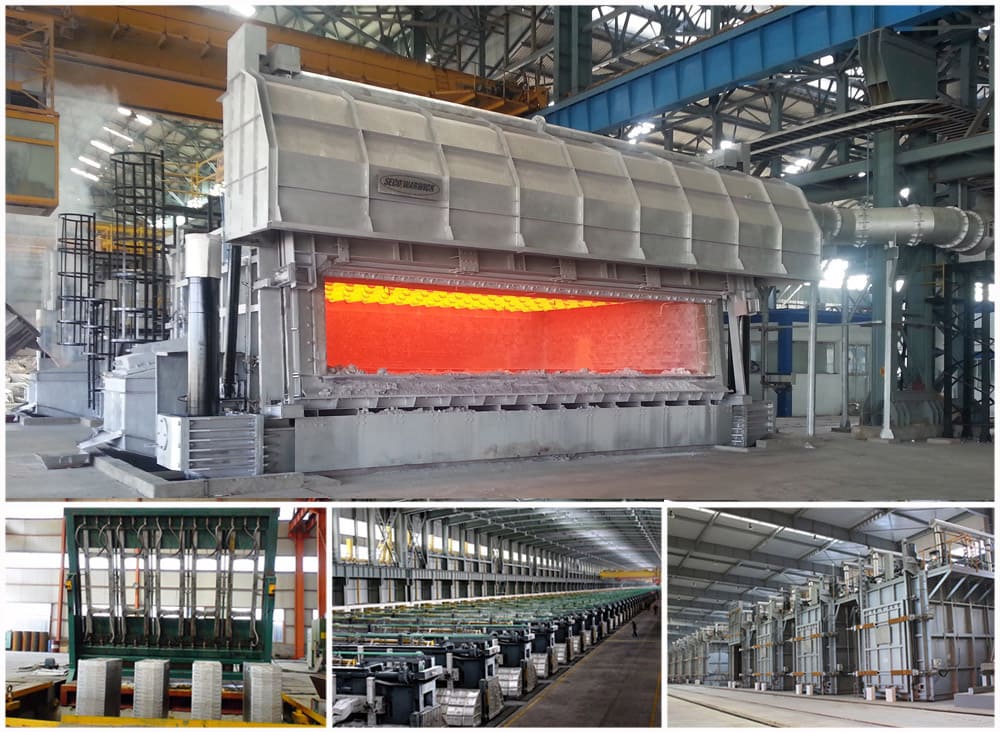
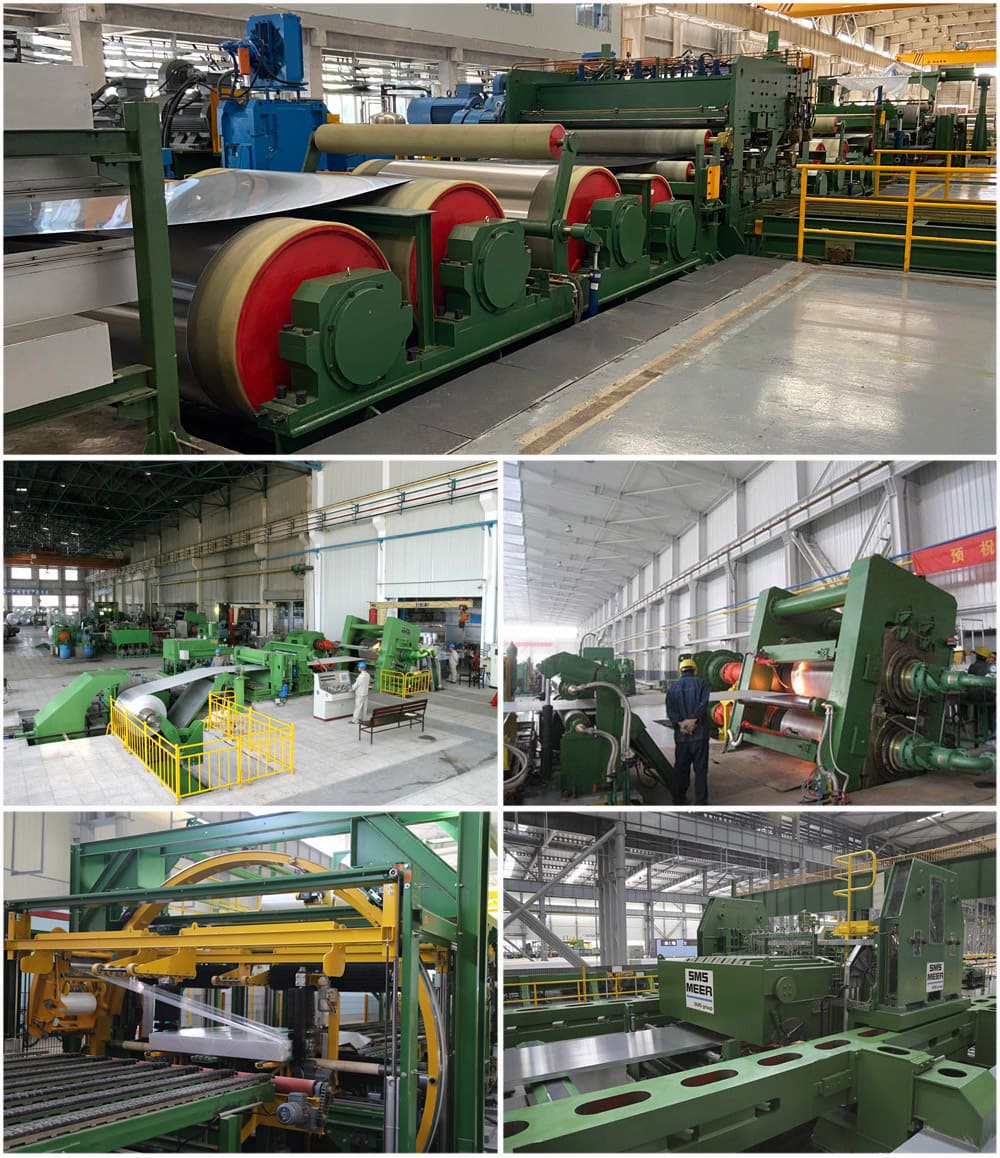
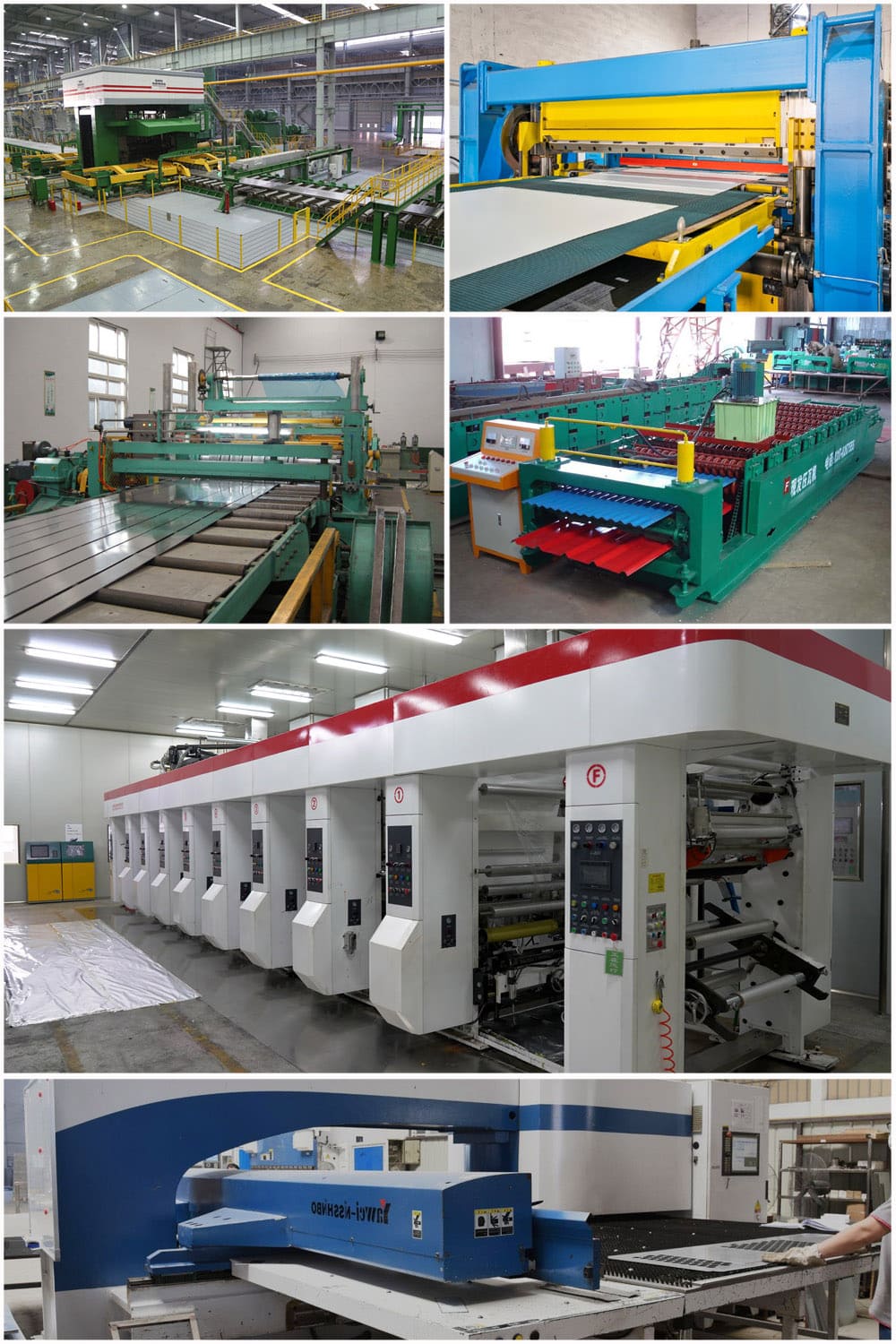


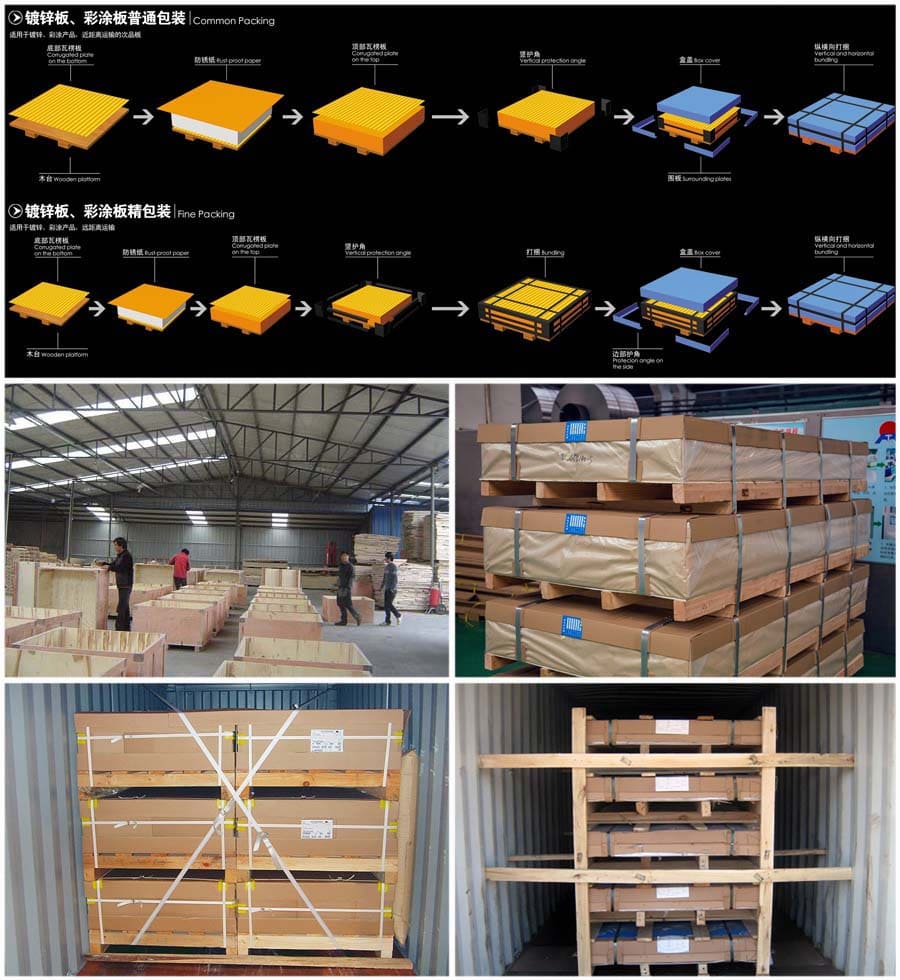
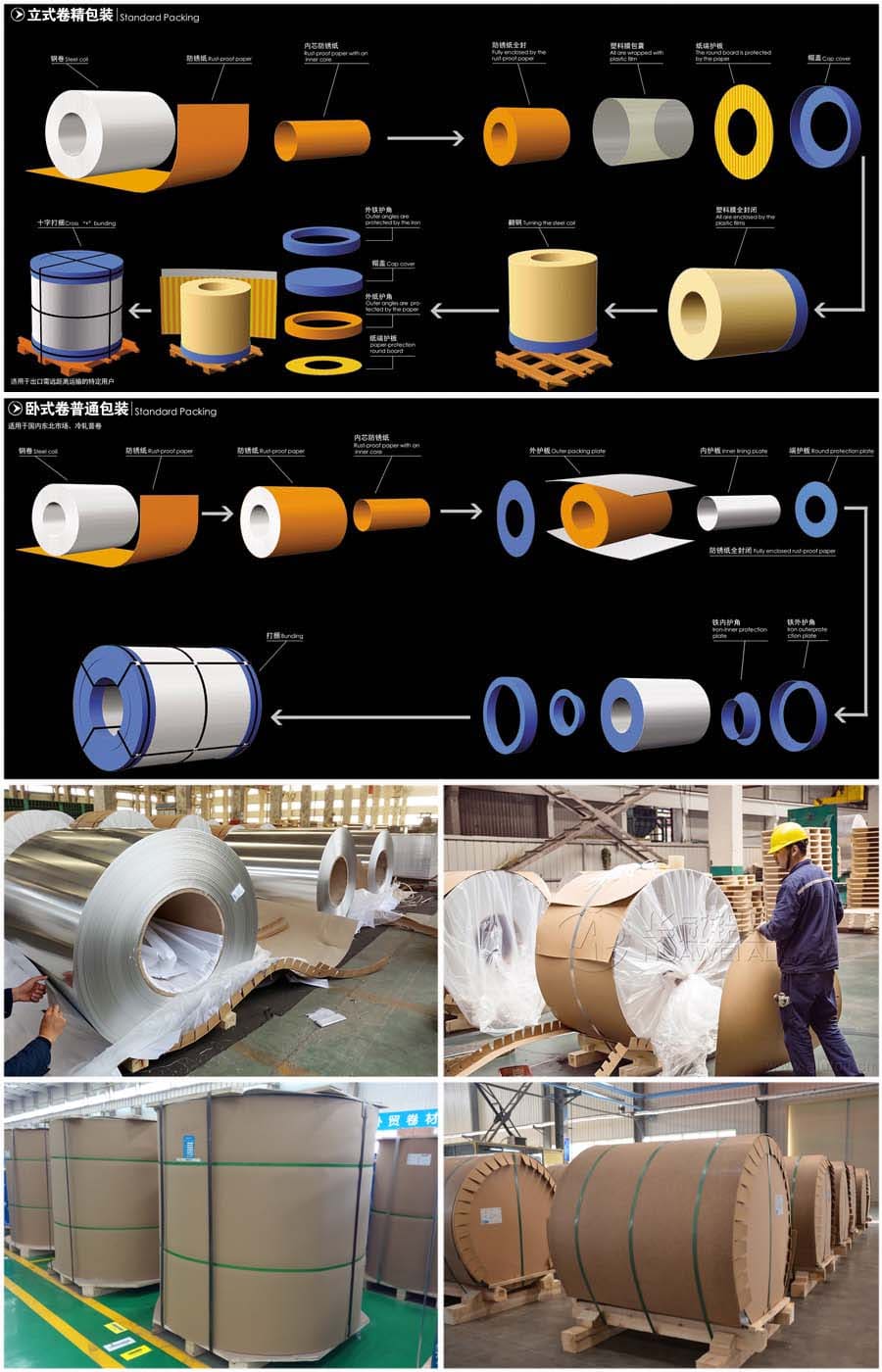
Latest Comments
Dear Sirs, I'm looking for a provider of aluminum 7075-T651 in 1.0 or 1.5 mm thickness. We need about 180 plates of 200 mm x 200 mm. Are you able to provide a quote and delivery time for this? Thank you so much in advance. Kind regards, Francisco Silva
Hello, I hope this message meets you well. I have perused your website and I want a detailed price quote for your product; upon your response to this message I will forward more details concerning this order/project to you. I look forward to doing business with you. Warm thanks. Best regards, Ahmet Emir Purchase Manager SER MEKATRONIK SANAYI VE TICARET LTD.STI. Turkgucu O.S.B. Mahallesi 216.Sokak NO:5/1 Corlu / Tekirdag / Turkey Email: [email protected]
I need a quotation for 3000 series aluminum sheets/coils (3104 H19) for tuna can production, food-grade finish, delivery to Mazatlán, Mexico.
I am planning a business trip to China and I am very interested in your aluminium 8011 products for food container production. I would like to visit your factory during my stay in china: See your production lines (foil rolling, annealing, slitting, packing). Discuss specifications (8011-O temper, thickness 0.05–0.08 mm, jumbo roll). Review your quality certificates and export experience. Could you please let me know: Your available dates for a visit The location of your factory If you can provide an invitation letter for my business visa (M visa). Thank you for your kind support. Looking forward to your reply. Best regard: LOUNIS MUSTAPHA company name:TOP BARQUETTE SELECT [email protected] what's up:213 770 91 69 43
Merhaba ; Burak ÜNAL ben. Antalya ' da Ambalaj ve Temizlik ürünleri tedarik eden bir firmanın yetkilisiyim. Ayrıca P.E Streç aktarım işi yapmaktayım. Makinalarımızı 9 ve 10 micron alüminyum folyo aktarımına uyacak şekilde revize edeceğiz. Sizden istediğim, 9 veya 10 micron olacak şekilde 35 cm ve 45 cm jumbo folyolar için fiyat, termin ve şu bilgileri istiyorum ; 35 cm jumbo folyonun ortalama ağırlığı. 45 cm jumbo folyonun ortalama ağırlığı. Deneme olacağı için bu 2 ölçüde minimum sipariş tonajımız ne kadar olması gereklidir. İyi çalışmalar.